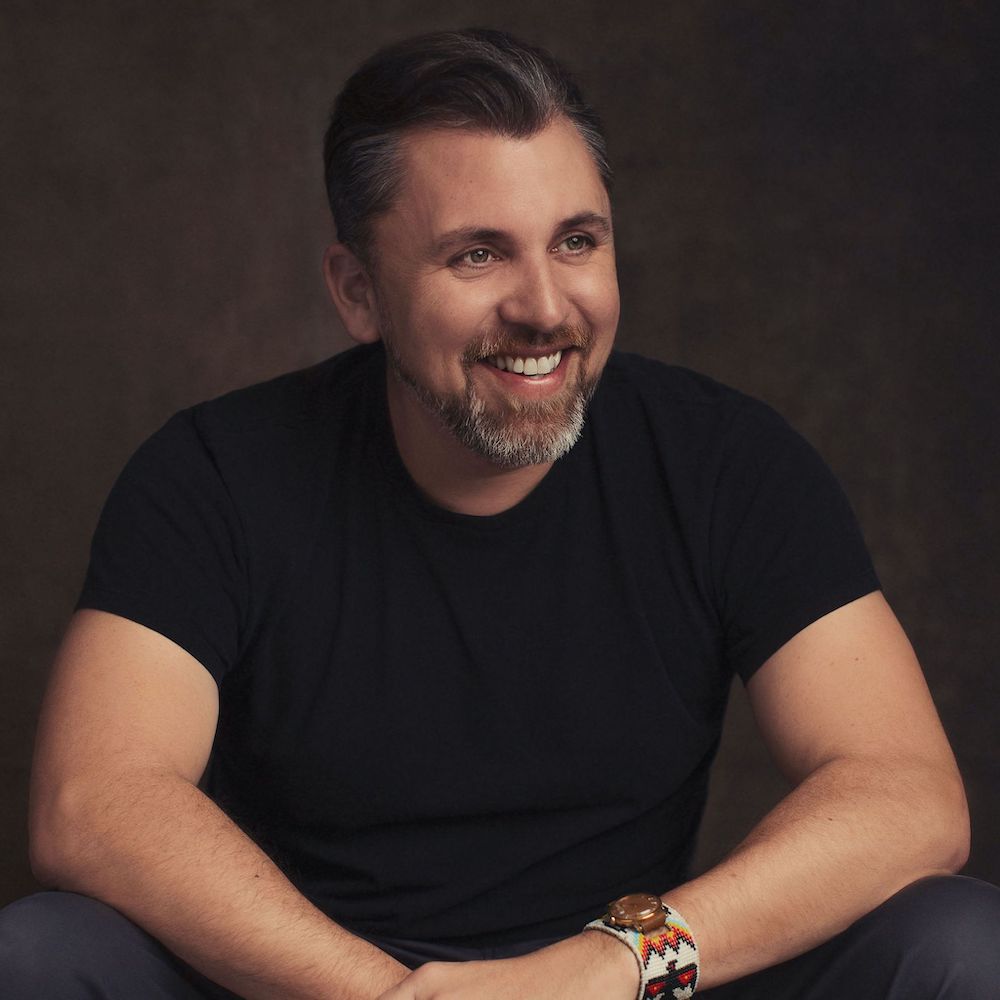
- Details
- By Kaili Berg
Indigenous entrepreneur Rob Pero, a member of the Bad River Band of the Lake Superior Tribe of Chippewa Indians, recently signed on as the creative director for Minnesota-based producer Anne Marie Gillen’s upcoming film project, a climate thriller called “The 7th.”
The film recently won a spot at The Redford Center and NBCUniversal’s Hollywood Climate Summit Pitchfest 2024. It combines elements of science fiction, action-adventure, and Indigenous ecological knowledge to address the issue of the climate crisis. The film will be made in a climate-conscious manner, and 1% of total profits will be donated to preserving the planet, according to a statement.
The storyline follows Piper, a 14-year-old on a quest to unlock her late Lakota mother’s secrets in the Black Hills, guarded by her grandparents. Meanwhile, Piper’s father takes on a global initiative to clean the skies using cutting-edge science.
Gillen, whose credits include “Fried Green Tomatoes” and “Under Suspicion,” serves as producer. Tokala Black Elk (Sioux) and Stacey Thunder (Ojibwe) serve as Native American consulting producers.
Pero’s role as creative director is another job on the entrepreneur’s long list of gigs that help advance Indigenous economic opportunities. He leads Perodigm, producing films, driving marketing campaigns, and offering Indigenous-focused consulting. He's also a leading advocate in the cannabis industry, founding Canndigenous and the Indigenous Cannabis Industry Association, while co-founding the Indigenous Business Group to support Indigenous-led businesses.
Native News Online spoke with Pero to discuss his personal connection to “The 7th” and how it integrates Indigenous knowledge in a film that balances entertainment and advocacy. He also weighed in on his excitement for filming in Minnesota, the film's message of empowerment and its call to action for positive change.
This conversation has been edited for clarity and brevity.
What inspired you to join "The 7th" as Creative Director?
Well, the picture was pitched to me at the end of last year. I looked at the pitch deck, and it immediately resonated with me. A half Native girl in the future utilizing traditional ecological knowledge to save the world—it just clicked.
Being half Native myself, and a father to three daughters with Native bloodlines, the narrative of a young teenage protagonist questioning her identity while shouldering the responsibility of preserving culture struck a chord. The commitment of the team to accurately portray Native culture, despite it being a fictional story, was admirable. They wanted to get it right, incorporating historical references and a respect for the Lakota.
Can you elaborate on how the film incorporates Indigenous ecological knowledge alongside advanced technology to address the climate crisis?
It's about combining traditional practices with modern innovation. Utilizing what you plant and ensuring sustainability aligns with Indigenous wisdom. The philosophy of being good stewards of the land and not taking more than we need resonates deeply. We have the tools to induce natural rewilding, while leveraging new technologies like nanotech.
It's a call to action, showing that science alone can't solve our problems—we need a holistic approach that integrates Indigenous knowledge.
What challenges do you anticipate in balancing the sci-fi elements of the film with the real-world issues of climate change and Indigenous culture?
It's a delicate balance. We want to entertain with a fictional story, while also raising awareness about pressing issues like climate change.
By presenting a narrative that's both exciting and thought-provoking, we aim to inspire action. We're showcasing a future where every tool we need to make a change is available now, alongside traditional knowledge and practices.
It's about emphasizing that the time for change is now — not in some distant future where a young girl has to save the world.
As the creative director, what aspects of the film's production are you most excited about bringing to life?
Filming in Minnesota offers stunning natural landscapes. Our goal is to utilize traditional lands and collaborate with local tribes.
It's also about involving more Native filmmakers and storytellers in the project. Authenticity is key—we want to infuse the film with the richness of native culture and relationships, reflecting the reality of our communities.
What do you hope audiences take away from watching the film?
I hope it prompts reflection. The film is an empowering call to action, reminding us of our responsibility to future generations. By highlighting the interconnectedness of science, culture, and nature, we aim to inspire individuals and communities to take meaningful steps towards positive change.
More Stories Like This
Q&A: Cree Métis and Two-Spirit Artist and Fashion Designer Jason BaergHere's What's Going in Indian Country, May 3rd — May 9th
Jim Thorpe, the World’s Greatest Athlete, Posthumously Honored with the Presidential Medal of Freedom
Sundance Institute Announces Fellows for the 2024 Directors, Screenwriters, and Native Labs
Q+A: Waha Delormier on Elevating Indigenous Representation in Fashion and Film
Native Perspective. Native Voices. Native News.
We launched Native News Online because the mainstream media often overlooks news that is important is Native people. We believe that everyone in Indian Country deserves equal access to news and commentary pertaining to them, their relatives and their communities. That's why the story you’ve just finished was free — and we want to keep it that way, for all readers. We hope you'll consider making a donation to support our efforts so that we can continue publishing more stories that make a difference to Native people, whether they live on or off the reservation. Your donation will help us keep producing quality journalism and elevating Indigenous voices. Any contribution of any amount — big or small — gives us a better, stronger future and allows us to remain a force for change. Donate to Native News Online today and support independent Indigenous-centered journalism. Thank you.

